The successful transition from online to live poker is no surprise these days. However, twenty years ago, people still had doubts about whether Internet players would be able to withstand the stress of a live game against real professionals, whether they would break under the x-ray vision of seasoned veterans, whether they could cope with chip counting and lack of statistics, and so on. But time has proven that the many differences between playing live and playing over the Internet are, by and large, irrelevant. Only one thing matters: how well a person can play poker. If he can do it very well, he will be fine at both the Bellagio and PokerStars.
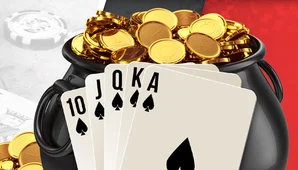


They also come from online to live in other intellectual games, for example, in chess, where convenient gaming zones appeared 25 years ago where you can find sparring partners of the right level 24 hours a day. The winners of the last Chess Olympiad from the Uzbek team grew up almost exclusively thanks to playing on the Internet. Current world champion Magnus Carlsen played over five thousand games of blitz at the Internet Chess Club before becoming a grandmaster. He was a young super talent from a rich country and received invitations to any live tournaments, but only online he could fight Aronian, Svidler, Mamedyarov, and Nakamura every day, and such a practice hardly affects progress less than a few six-hour games in a super tournament.
In general, it does not take much effort to believe in a successful transition from online to live games. What about real sports? It turns out that this is also possible.
The strength of a professional cyclist is determined by many parameters, including, for example, the ability to choose a position, avoid the wind, go through technical descents, and so on, but one of them confidently crushes all the others: you cannot count on success if you do not develop enough power. Power is measurable, and the advent of measuring power while riding revolutionized rider training in the early 21st century. It is measured in watts, but to compare athletes with each other, they usually use the ratio of power to weight – W / kg. An ordinary amateur (with great enthusiasm and a lot of free time for training, but without superhuman physiology) in an hour-long race will usually hit the ceiling in the region of 3.5-4 W/kg. World-class professionals give out at 5.5 W/kg.
Pedaling power is also measured by many exercise bikes, and in the late 1900s, sites began to appear that combined exercise bike data with a more or less beautiful picture that changes depending on your efforts. Many saw it in the Black Mirror – not the best advertising, of course, but their software was pretty mediocre.
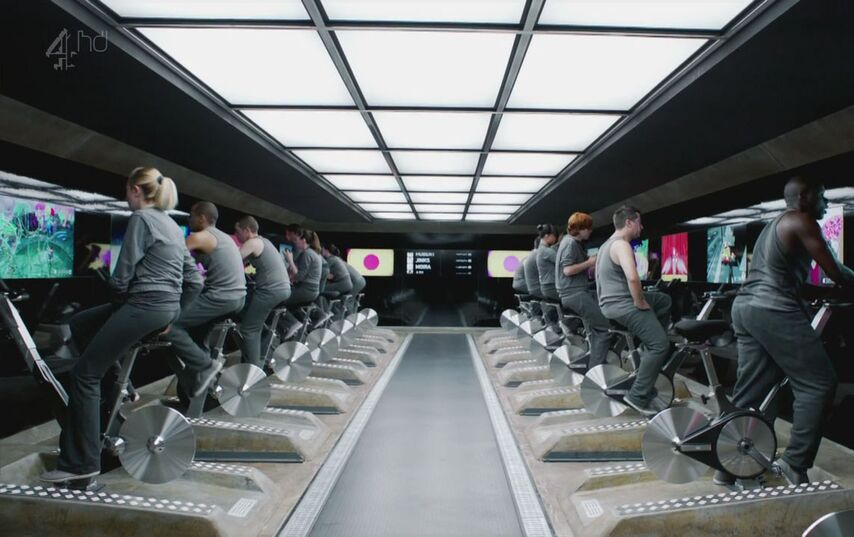
Zwift decided to simulate the competition between racers. People sit at home on bike racks and compete in races in virtual worlds on Zwift servers. The program simulates physics as correctly as possible, taking into account the effect of drafting on aerodynamic drag, but it is based on the same watts per kilogram. You can't get stuck and hurt yourself, you can drive through the bodies of other riders quite easily, you always have maximum speed on the descent and you are perfectly cornering, but when you need to apply power – when climbing a mountain or when finishing sprinting – you definitely feel the struggle, as in real racing ... and sweat, if you did not take care of the industrial-style fan, pours much more. The rooms equipped for regular training are called Pain Caves on the forums – pain caves.
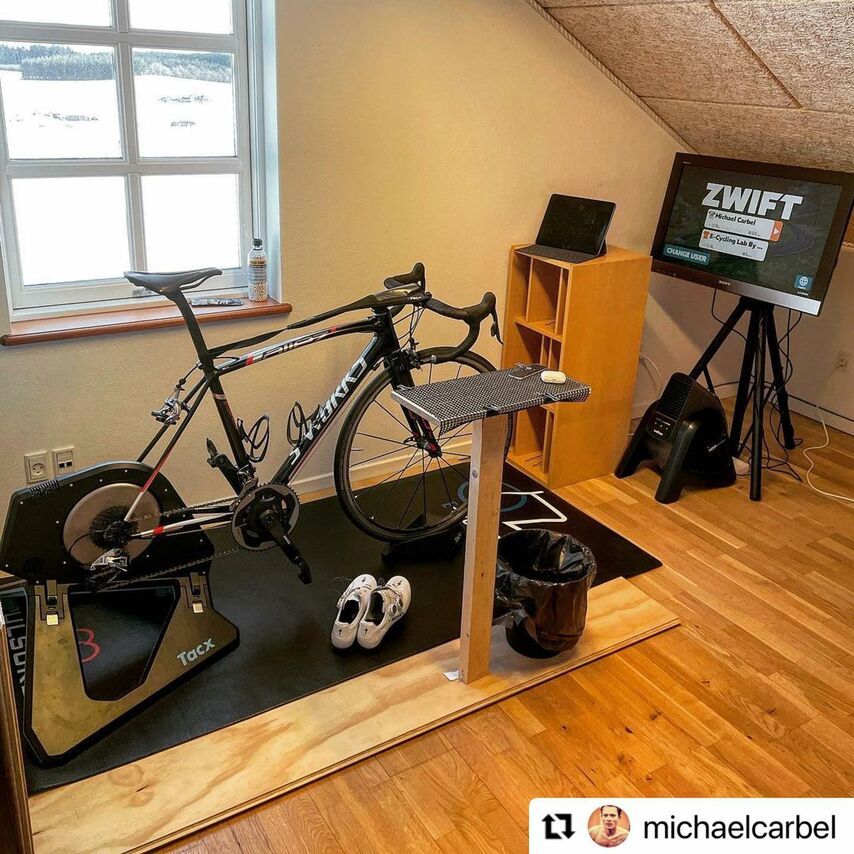
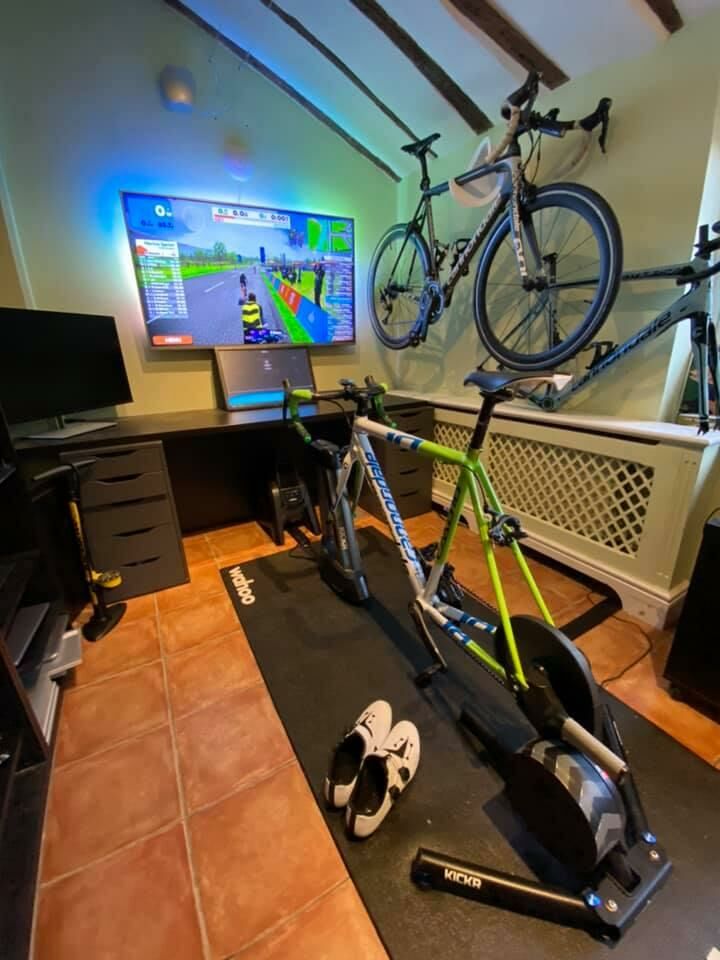
How such races look can be found, for example, on YouTube.
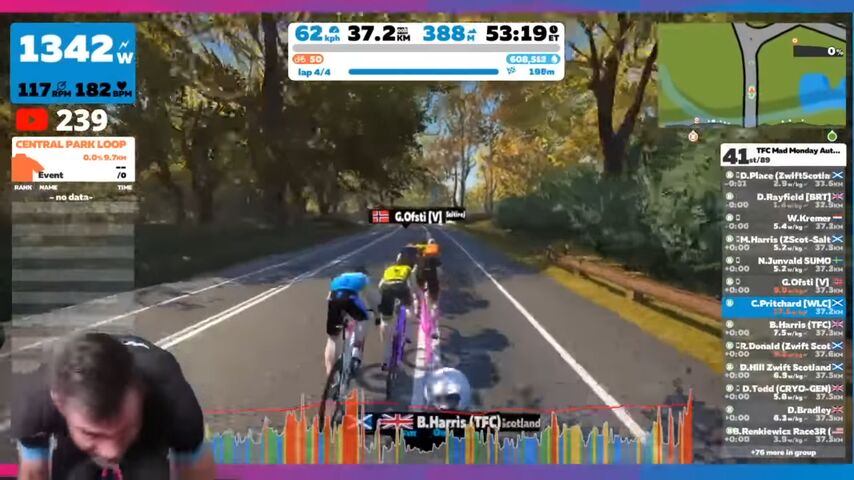
Among the huge pool of amateurs who discovered cycling thanks to Zwift, statistically, there should be people who can produce pro-level watts. But watts alone are not enough to be good at a professional level, right?

It's time to meet Jay Vine, a 26 year old cyclist from Canberra, Australia. He took up road cycling only at the age of 24 – before that he raced a little mountain bike, but had no success. In 2019, he got a job in the local road team at the regional level, but then the pandemic began. In Australia, the screws were tightened especially hard, and the only opportunity for Vine to train was in the virtual world of Zwift.
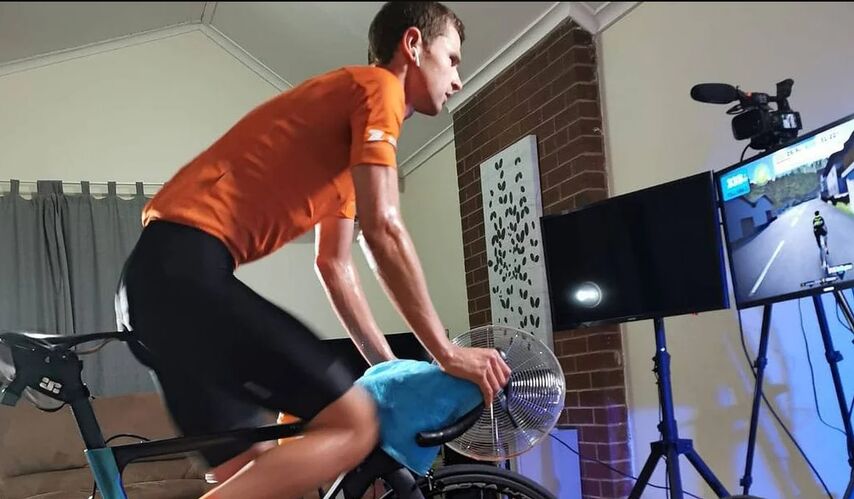
Zwift was also his only chance to break into the big leagues of cycling. This is a conservative world where almost all the prestigious competitions take place in Europe, and team managers do not pay attention to the results on other continents. Yes, at the beginning of 2020, Vine took a high 5th place in a fairly high-profile race in Australia, but at this time of the year, Europeans are usually split up and just getting in shape before a long season. Nothing in the biography of Jay Vine could attract the attention of the scouts. And Zwift...
The company's explosive growth in popularity has given it marketing opportunities never seen before in an online simulator. The main prize of one of their projects – the Zwift Academy – was a contract with a professional team participating in the World Tour races. Until 2020, only riders under the age of 23 were accepted into the project, but in 2020, the age limit was removed.
Vine passed all the selections, but in the final race he suffered due to a power outage: the Australian was in the lead 7 kilometers to the finish line, but his bike rack lost connection with the computer, and it was not possible to win back the lost time.
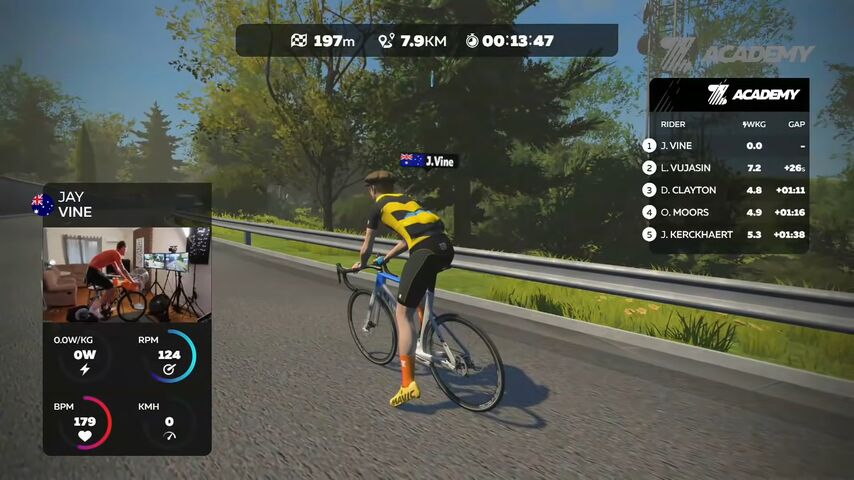
He took 2nd place, 37 seconds behind the winner. It was a devasting blow, but he did not have to suffer long. The final decision was made by the representative of the Alpecin team, and he handed the contract to Jay Vine.
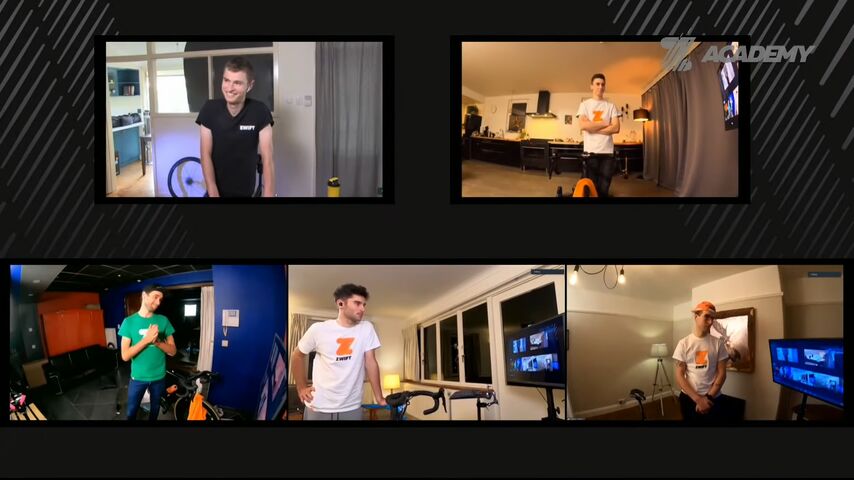
Vine and his wife sold everything they had in Australia, moved to Europe, and settled in Catalonia, in Girona, a small town where many professional cyclists are based. In 2021, Vine took 2nd place in the overall standings of the Tour of Turkey – a fairly easy race, but earned respect for quality work for the team throughout the season. He also flashed at the Vuelta, the third most prestigious stage race of the calendar. Vine went into breakaways at several stages and almost won the 12th – the peloton rolled him only in the last kilometer of the race, almost at the finish line!
On the 14th stage, Vine was picking up the tank from the escort car – a routine procedure for an experienced racer, but somehow hooked the car, fell, and he lost some skin.
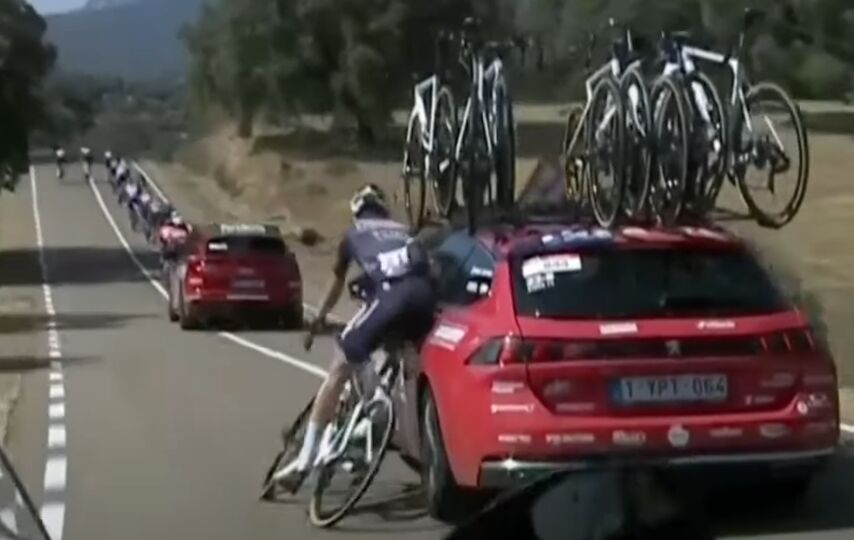
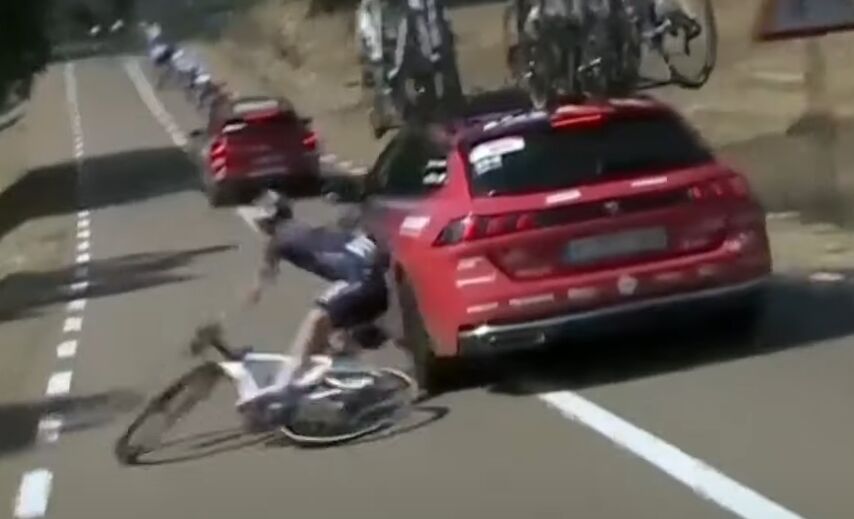
The stupid incident did not affect anything (Vine took 3rd place at the stage and drove the Vuelta to the end), and the Australian stayed with the same team in 2022, signing a new contract for two years. In February, he once again proved his power in virtual racing by winning the online world championship, held in Zwift under the supervision of the international cycling federation. His watts per kilogram in these competitions were at the level of the strongest riders in the world, but live aerodynamics play a big role, with which the lanky Australian still has work to do. The effect of the wind is noticeably reduced only in the mountains, at gradients above 8%.
Fortunately for him, such gradients were found at the Vuelta 2022.
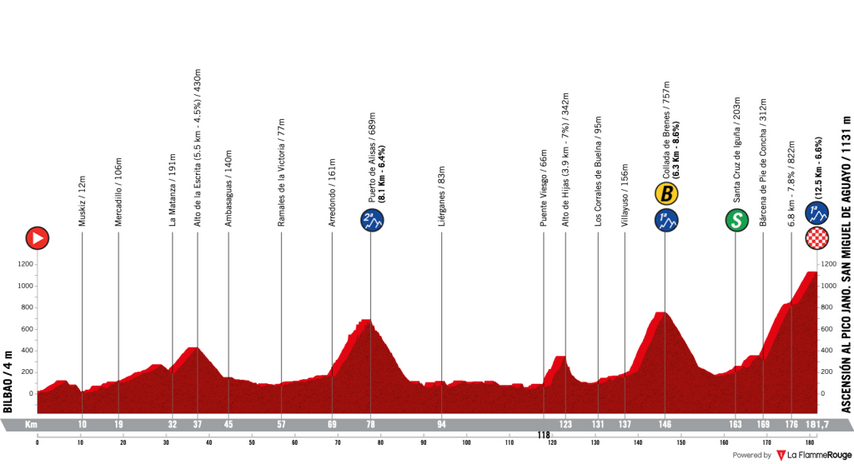
In one of the early stages, Vine deliberately lost about 20 minutes so as not to pose a threat to the riders claiming the overall standings, and then began to surge in breakaways, hoping to compete for victory in one of them. The chance presented itself already at the 6th stage.
It was the first mountain stage of the Vuelta, but it was also one of the most difficult – 181.7 kilometers with a total climb of over 4,000 meters.
The Aussie did not manage to break away, so he attacked closer to the end, at the very beginning of the last climb, while the contenders for the overall standings waited and watched each other.
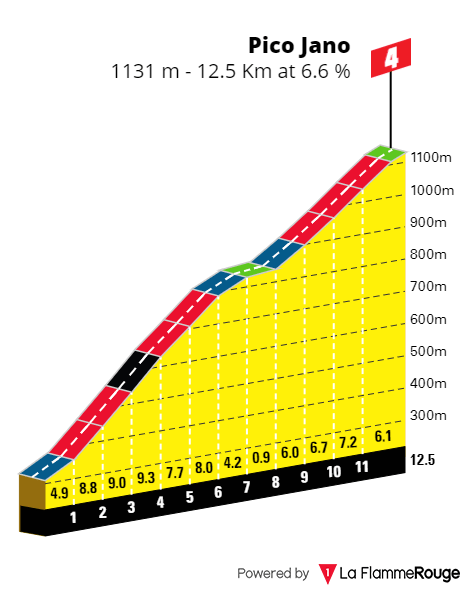
In dense fog, he quickly overtook the exhausted participants in the early breakaway and soon took the lead.
A few minutes later, the attack was made by Remco Evenpool, a Belgian child prodigy and one of the main favorites of the stage race. His mighty climbing rhythm was beyond the power of any of the competitors, and at some point it seemed that Vine could not hang on. However, somehow Jay managed to stabilize the gap around 20 seconds and defend the stage to earn victory.
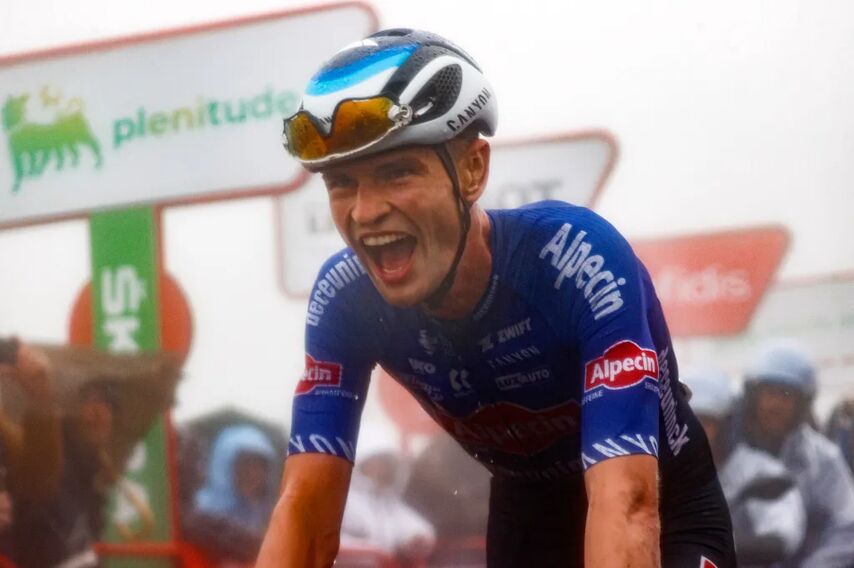
The journalists calculated that on the last mountain, Vine produced one of the best mountain stretches in the recent history of cycling: 6.58 w/kg for 29 minutes 53 seconds.
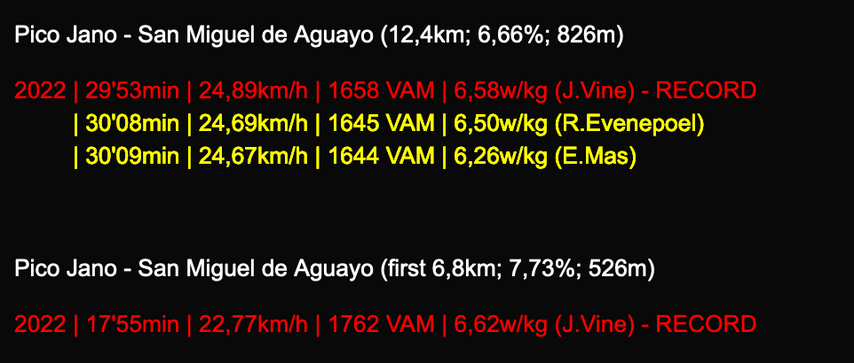
And here is a comparison of the best mountain results of Jay Vine with the winner of the Tour de France 2022 Jonas Vinego.
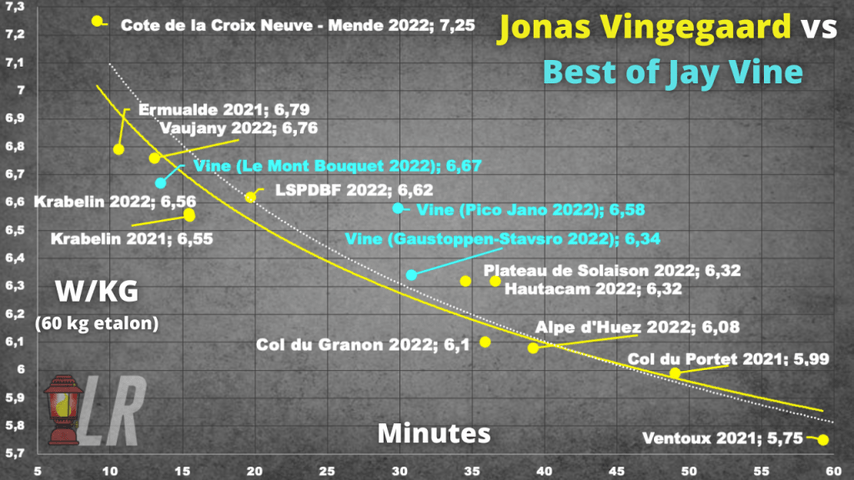
This victory alone would be enough to consider Vine's transition from online to live a complete success. However, a day later, Jay won again!
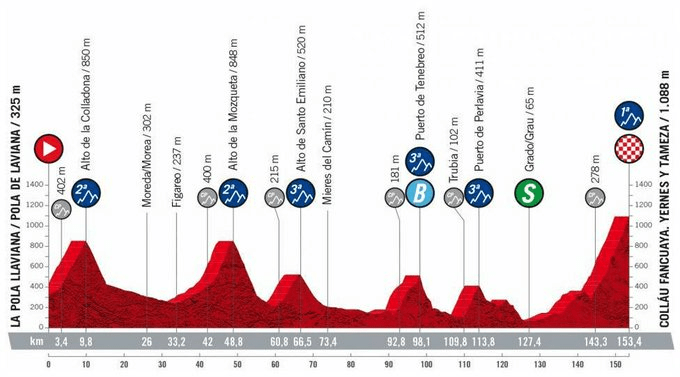
At the very beginning of the eighth stage, he left for an early breakaway. At first, it seemed that his goal was the mountain king's jersey, which is awarded to the one who scores the most points at the intermediate mountain finishes. Vine really accelerated at all intermediate levels and took maximum points. However, when a tailwind picked up the group on the plain between the peaks, and the breakaway comrades continued to work smoothly, overtaking each other for the first position and not missing shifts, Jay realized that he could aim for more.
High-quality joint work in breakaways is usually possible when riders of approximately the same level have gathered together. There were many athletes with big names – Thibaut Pinot, Marc Soler, Mikel Landa, Alexey Lutsenko ... However, none of them ever showed the power density of Vine's level, which made their chances of victory extremely illusory. It turned out that they just comfortably drove the Australian to the last mountain. Did they just underestimate the Internet user?
The final ascent of the stage is 10.3 km with a gradient of 7.7%, sections steeper than 10%, and a dirt finish:
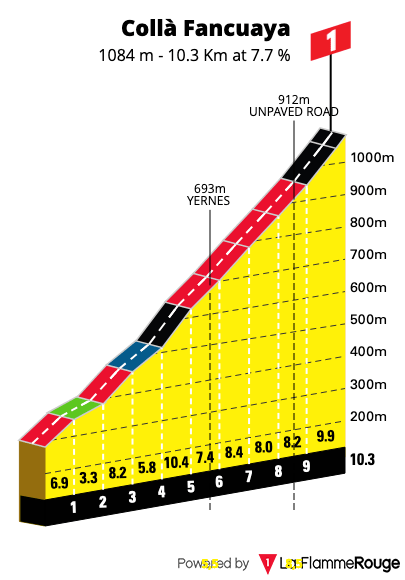
Vine's attack on the first steep section scattered all competitors, and alone he confidently drove to his second victory at the Grand Tour, along the way winning the pea jersey of the mountain king, which he is now unlikely to lose before the finish line in Madrid.
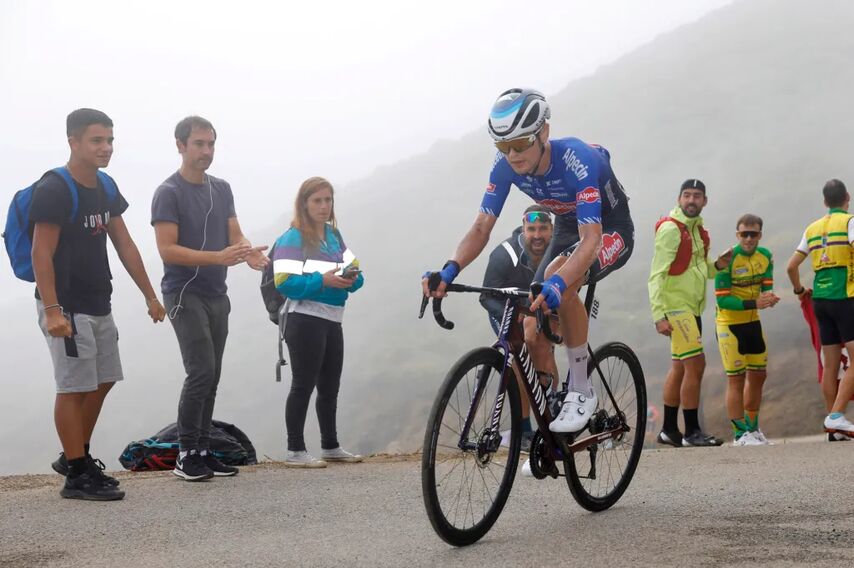
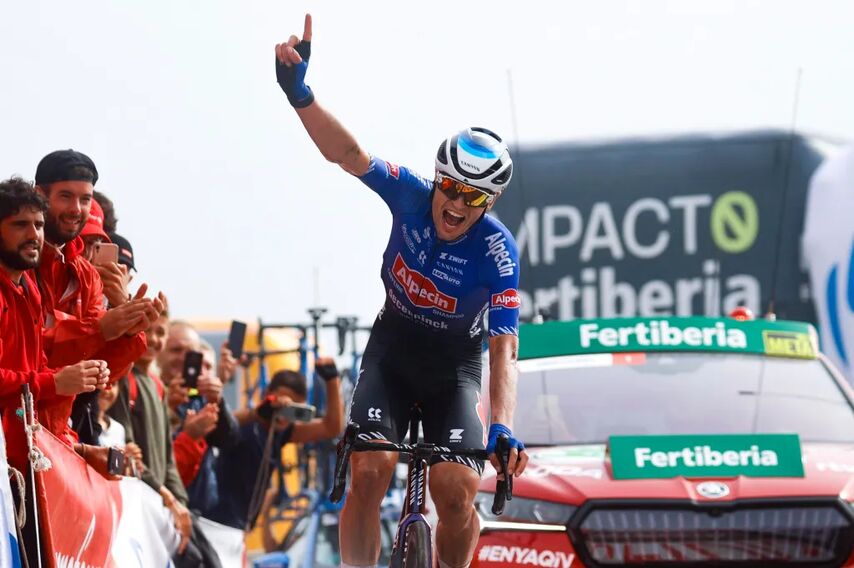
It can be imagined that in the future, with the development of virtual reality technologies, we will be able to professionally practice tennis, football, or figure skating at home. However, this is still far away, but for cycling lovers, a bright tomorrow has already arrived.








